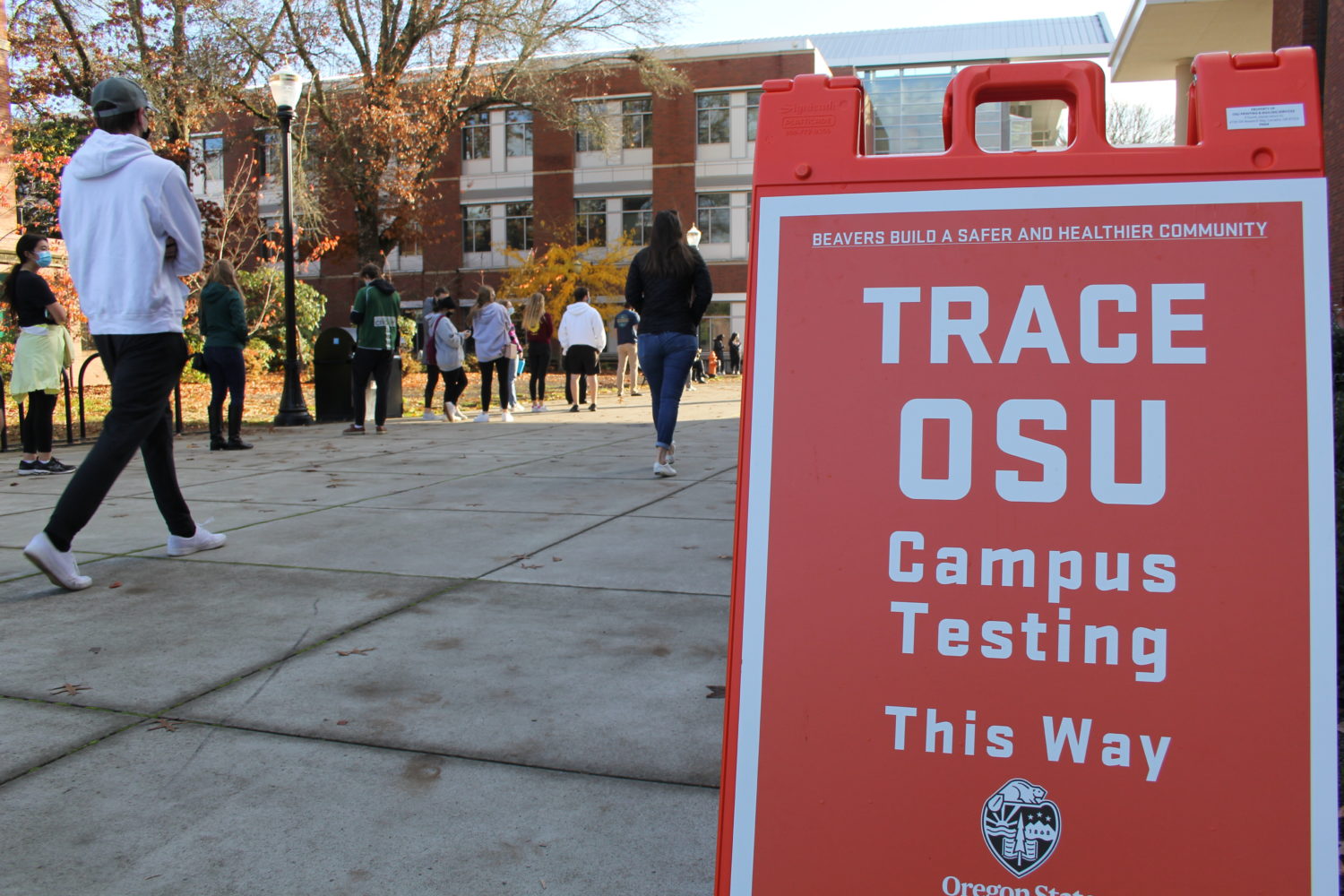
College students grieved losses other than death during the COVID-19 pandemic
College students around the world faced varied types of grief early in the COVID-19 pandemic. A new study finds that loss of normalcy was the most common. This photo was taken in fall 2020. (Photo by Sean Nealon, Oregon State University, licensed under CC BY-SA 2.0.)
College campuses across the U.S. became ghost towns in 2020 during the early stages of the COVID-19 pandemic. Students had to stay at home for months. Online learning enabled students to continue their studies, but the changes also brought a sense of loss.
Perceived safety and ritual were among the things students most commonly felt they lost, grief researcher Erica Sirrine found. But such losses not related to the death of a loved one can sometimes feel “diminished or ignored or silenced,” she said Oct. 24 during the Council for the Advancement of Science Writing’s New Horizons in Science briefing at the ScienceWriters2022 conference in Memphis, Tenn.
Understanding the varied types of losses students experience and how they feel about them, she said, can help university communities better serve those who are affected.
Sirrine, director of social work at St. Jude Children’s Research Hospital, was teaching social work courses at Southeastern University in Lakeland, Fla., at the start of the pandemic. She realized early on that her students were deeply affected and set out to try to understand what they were going through.
She created a survey and invited faculty to share it with their students through social media groups, listservs and email. More than 160 undergraduate and graduate students from 12 states responded.
About 90% of the students said they experienced a loss of normalcy, and more than 80% said they faced a loss of connection to others after classes went online, Sirrine and colleagues reported June 2021 in Omega – Journal of Death and Dying.
But when losses are not related to death, individuals can sometimes feel disenfranchised of their right to grieve, Sirrine said. “People can do it to us, but we can [also] do it to ourselves.”
Integrating loss into daily life
With some students in Sirrine’s study, the more losses they felt, the more they avoided their grief. But that kind of coping strategy did not help them effectively deal with the loss they were feeling.
A more beneficial approach involves “finding meaning and integrating those losses into our ongoing lives,” Sirrine found. To do this, some students leaned on the relationships they had outside of school, or listened to music. Some drew on their spiritual beliefs to find help processing their losses.
About 30% of students in the study approached a faculty member or counselor at their university to discuss how they were feeling. Sirrine recommends that faculty initiate conversations with their students to help them learn about strategies that can help with overcoming loss.
Her study on college students relates well to her work with younger patients at St. Jude. Even while facing life-threatening illness, children and their parents also deal with other losses that are not related to death. They generally miss how things were before diagnosis — before they packed up their lives and moved to the hospital, sometimes leaving support systems behind. Children often miss attending school and seeing their friends. Parents witness changes in their children that are caused by medication or disease. The drastic changes can lead to loss of a sense of normalcy.
But grief that accompanies an ending can also offer the potential for a new beginning, Sirrine said. “Yes, I have experienced a great loss and I am forever changed … and I can choose to invite hope and beauty and love and joy in.”